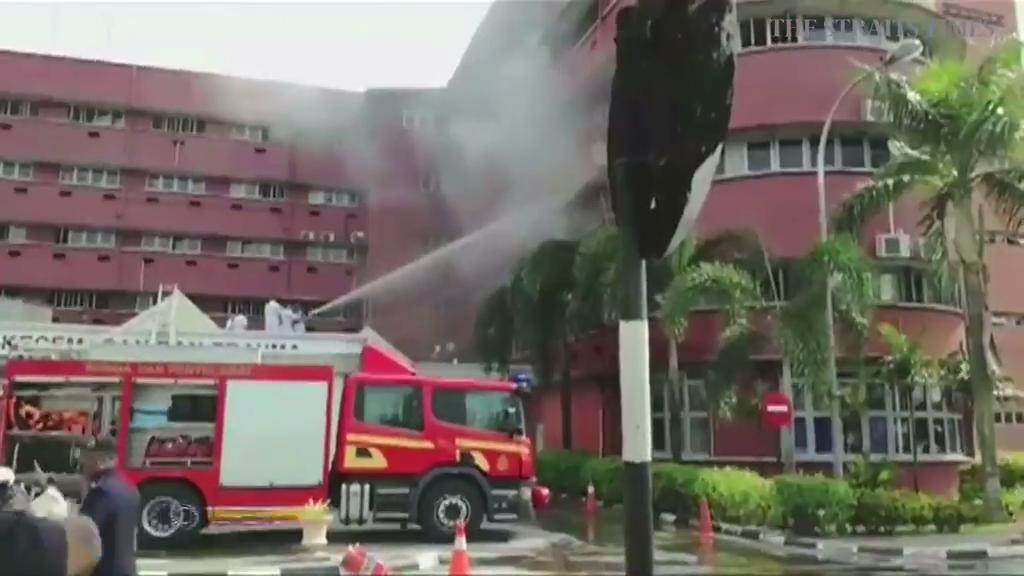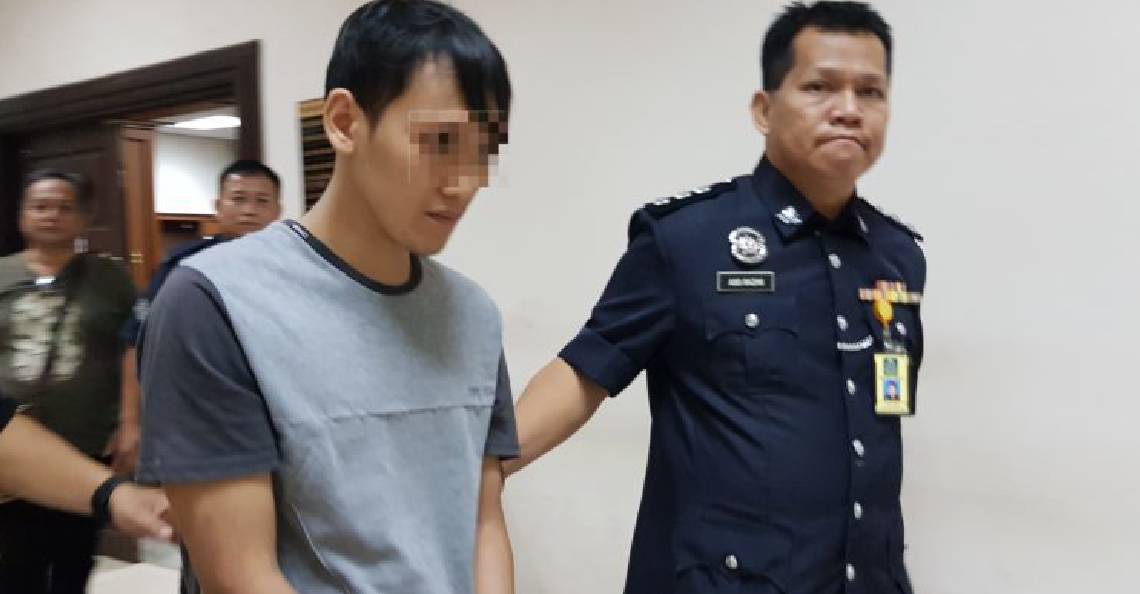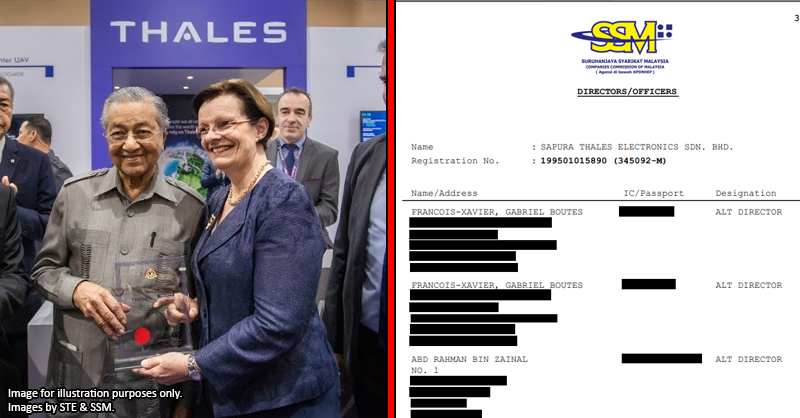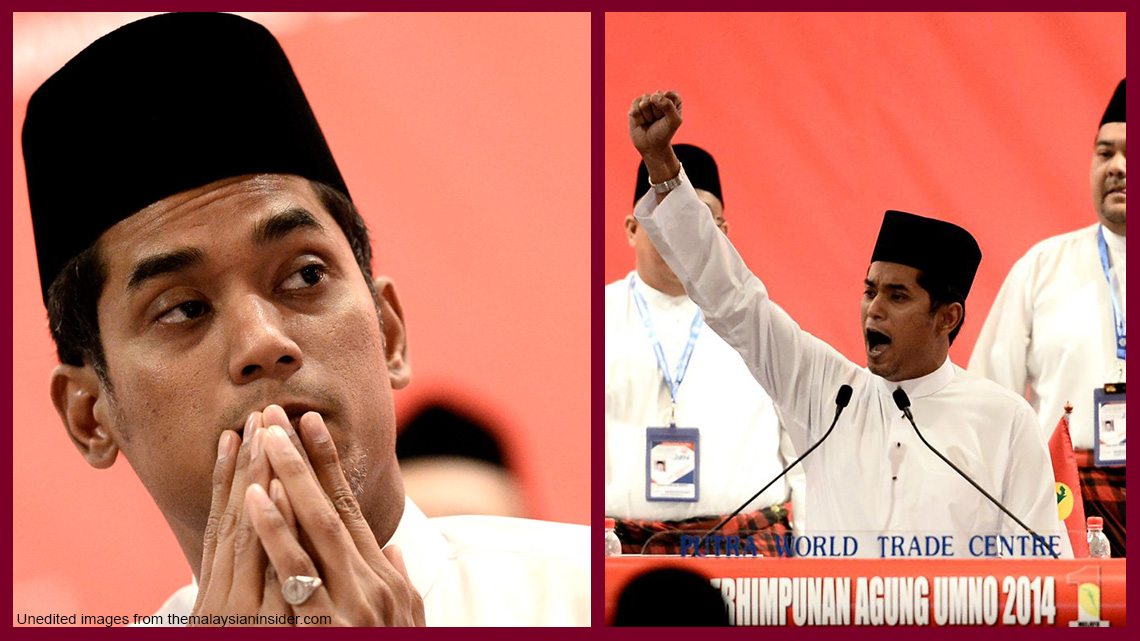Syed Saddiq was among those investigated by the PDRM these past 2 months, but for what?

- 241Shares
- Facebook226
- Twitter2
- LinkedIn4
- WhatsApp8
If you have a poster of Syed Saddiq marinating in an icy bathtub on your bedroom wall, you might be interested to know that your bookish oppa now has a bad boy reputation: a few days ago, he was called up for questioning by the police.

Apparently, it had something to do with an interview he did with al-Jazeera in March this year, right after Malaysian politics did an oopsie. Saddiq had allegedly said some stuff that’s worth investigating under the 1948 Sedition Act and the 1998 Communications and Multimedia Act (CMA).
“Allegedly [the] issue [is] with the purported royal coup and backdoor government by Perikatan Nasional (PN)… The interrogation with the police took place for less than an hour; [it was] for 45 minutes,” – Saddiq’s lawyer, to the Edge Markets.
Whoah. But as it turned out, Syed Saddiq’s predicament was only the tip of the iceberg. Because if you look at the news for the past two months…
The CMA and Sedition Act is being used a lot lately

It’s easy to miss with the MCO and all, but Saddiq’s not the only one facing the heat. In the past couple of months, enough people got charged or investigated, either under the Sedition Act, the CMA, the Penal Code and/or the Official Secrets Act (OSA). In fact, there’s so many that rather than exploring each one, it would be easier to make a list:
- On May 3, Tashny Sukumaran, South China Morning Post journalist, got investigated under the CMA and Penal Code for tweeting about an Immigration raid at the Selangor Mansion EMCO.
- On May 8, Datuk Shamsubahrin Ismail, founder of Big Blue Taxi Services, was charged under the CMA and Penal Code for a Facebook post criticizing the prosecution of those who breach the MCO.
- On May 10, Patrick Teoh, former radio personality, was remanded for three days under the CMA for allegedly posting insulting remarks against Johor royalty.
- On May 20, Xavier Jayakumar, Kuala Langat MP, was probed under the Sedition Act and CMA for a video clip of him saying that the one-day Dewan Rakyat sitting in May to be “worthless” and “rubbish” following about 33 police reports lodged against him.
- On June 5, Cynthia Gabriel, founder of the Centre to Combat Corruption and Cronyism (C4), got investigated under the Sedition Act and CMA for C4’s letter calling for the MACC to investigate possible ‘horse-trading’ among politicians to maintain or capture federal power.
- Also on June 5, R Sri Sanjeevan, chairperson of MyWatch, was charged with two counts under the CMA for two tweets that attacked the reputation of the police.
- On June 16, Steven Gan, editor-in-chief of MalaysiaKini, got investigated under the CMA and Penal Code, for readers’ comments on the site that allegedly ‘threatened public confidence in the judiciary‘.
- On June 23, Hannah Yeoh, Segambut MP, got investigated under the Sedition Act, CMA, and Penal Code for allegedly posting a statement implying that underage marriage will spread under PAS, and that it’s ‘a disease of uncivilized Muslims in this country’.
- On June 26, Boo Su-Lyn, editor-in-chief of CodeBlue, got investigated under the Penal Code and the OSA for a series of articles that raised concerns over fire safety in public health institutions, following declassified findings from an inquiry on a 2016 fire that killed six at the Hospital Sultanah Aminah in Johor.

We’ve actually written a lot about the Sedition Act before, so if you’re interested you can check out our sedition tag. But these four laws have something in common: what constitutes as an offence under them is about as loose as Kenny Loggin’s foot after eight hours of work. Too many things can be considered seditious according to the Sedition Act, and under the CMA, comments that are ‘obscene, indecent, false or menacing in character‘ are offences, which can mean a lot of things.
The Penal Code and the OSA also had their fair share of criticism: practically anything can be declared as an official secret by the government, and some sections of the Penal Code, like Sections 504 (Intentional insult with intent to provoke a breach of peace) and 505 (Statements conducing to public mischief) has the same energy as Section 233 of the CMA.
So with that in mind…
What did Saddiq say in his interview that involves Sedition and/or the CMA?
The actual interview ran for less than 10 minutes, and in case you don’t feel like listening to it, here’s a link where we transcribed it, word-for-word, as best as we could. As we’ve mentioned before, Sedition and the CMA are pretty vague, and since it wasn’t revealed explicitly which part of the interview brought on the investigations, we had to guess which part may have ticked people off, much like a puzzled husband trying to figure out why he’s sleeping on the couch tonight.

Using our special Don’t-sue-us Editorial Sense™ honed over the years, we picked out some potentially offensive parts of the interview, which are highlighted in our Google Docs transcript:
- referring to a party (possibly UMNO) as ‘global kleptocrats‘ six times
- referring to the PN government as a ‘backdoor government‘
- claiming that Muhyiddin faked the party’s support for him, and presented the false support to the King
- some parties were unhappy enough with the power succession to ‘subvert Malaysian democracy‘
- saying that the new government is suffering from ‘a lack of good racial composition or unity‘
- saying that the previous-previous government threatened Saddiq’s family, in particular his mother
- saying that the previous-previous government tried to bribe Saddiq to join them
- accusing daddy Muhyiddin of being the one who opened the government to the global kleptocrats
These are just the ones we think might set off some people, particularly from the current government. There can potentially be more as looking at how these things work, even if Saddiq had refrained from outright saying ‘global kleptocrats’ or ‘backdoor government’, when it comes to the message of the interview in regard of sedition and the CMA, if there’s a will, then there’s a way to lodge a police report and have him investigated.
One may wonder why such vague yet punishing laws are still around, but that’s a whole mess that we won’t get into in this article (because this other article kinda explains it already). But with the rate at which people are being snatched up because of these laws, some have wondered…
Is the government back to restricting free speech in Malaysia?

Long before the so-called ‘Malaysia Baru’, there was a time when scores of people got arrested for speaking out, either through words or peaceful assembly – sometimes more than 100 in a single month. With the recent surge in cases of where people got into trouble for speaking out, some have wondered if we’re bringing old habits back. Phil Robertson, Human Rights Watch’s deputy Asia director, had remarked that this is a step back for Malaysia.
“Like flicking a light switch, Malaysian authorities have returned to rights-abusing practices of the past, calling journalists, activists, and opposition figures into police stations to be questioned about their writing and social media posts. The government should stop trying to return to the bad old days and revise the laws to meet international standards.” – Phil Robertson, in a statement.
Is that really the case, though? We don’t know. The police, for one, had assured the public that the recent investigations on politicians were not politically motivated, and according to the IGP Tan Sri Abdul Hamid Bador, the police is definitely not trying to intimidate or suppress freedom of speech.
“Prime Minister Tan Sri Muhyiddin Yassin has told me that the police must not be a tool to be used against the government’s political enemies. Even during the Pakatan Harapan rule, then Prime Minister Tun Dr Mahathir Mohamad advised me not to take action based on political motive. The police are on the right track, taking actions based on the Federal Constitution and laws,” – Tan Sri Abdul Hamid Bador, as reported by The Star.

So we’re back to the laws. While there weren’t a lack of suggestions to improve them, it seems that even two years of a different government couldn’t (or wouldn’t) do anything about them. Dr Mahathir, early on his tenure as the 7th Prime Minister, had admitted that the OSA is open to abuse, but he believed that the law should stay anyways.
“The law is not perfect. It is open to abuse, but you hope to find people who will not break the law, who will obey the rule of law. That is what is important… The last government did not follow the rule of law. They did what they liked with the law. The main thing is to find a government that will not break the laws,” – Dr Mahathir, as quoted by Straits Times.
Welp. Wonder if it was as ironic back then.
- 241Shares
- Facebook226
- Twitter2
- LinkedIn4
- WhatsApp8



